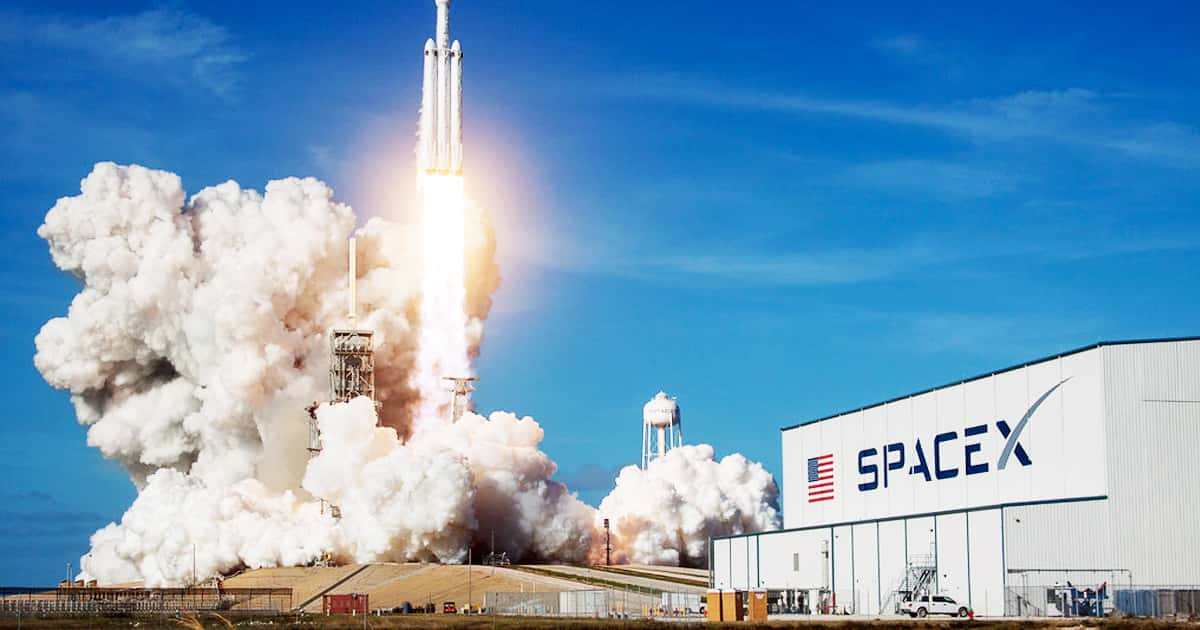
Elon Musk Is Aiming For SpaceX Rockets To Land On Mars Before 2030
Elon Musk Is Aiming For SpaceX Rockets To Land On Mars Before 2030
Could interplanetary travel become a reality within this decade? According to Elon Musk, it is definitely a possibility. In a new statement, the billionaire entrepreneur said his company SpaceX is set to land its "Starships" spacecraft and establish a base on Mars well before 2030.
His update comes after a recent Ars Technica report indicated that Europe will only be starting to look into rocket technology at that time. Musk criticized their plan in a tweet thread, telling European competitors they are "aiming too low" and that they will become obsolete if they do not amp up their R&D efforts.
https://twitter.com/elonmusk/status/1374284021379731457?ref_src=twsrc%5Etfw%7Ctwcamp%5Etweetembed%7Ctwterm%5E1374284021379731457%7Ctwgr%5E%7Ctwcon%5Es1_c10&ref_url=https%3A%2F%2Fembedly.forbes.com%2Fwidgets%2Fmedia.html%3Ftype%3Dtext2Fhtmlkey%3D3ce26dc7e3454db5820ba084d28b4935schema%3Dtwitterurl%3Dhttp3A%2F%2Ftwitter.com%2Felonmusk%2Fstatus%2F13742840213797314573Fs3D20image%3D
While European space efforts are targeting the commercial market once they are fully operational, they continue to lag significantly behind SpaceX in terms of rocket development and innovation. In just a few years, SpaceX has managed to outperform its European competitors, striking a significant blow to their market share by using cost-cutting reusable rockets.
Conducting mass exoduses of people from Earth to Mars would be unrealistic with single-use spacecraft, as they are incredibly expensive to produce and take a lot of time to manufacture. Musk's reusable rocketry expedites the entire process and could very well allow SpaceX to establish a Martian base before the decade end.
Musk is a firm supporter of space travel and has always dreamt of sending humans to other planets. He first announced his plans to develop a colony on Mars in 2016, saying that he hopes to complete the herculean project "in our lifetimes." He did warn the public, however, that early colonists should be "prepared to die," as he believes the real challenge is not sending people to Mars; but rather, sustaining life on it.
Naturally, not everyone is impressed with Musk's ambitions. Many public figures have openly denounced his alleged visions of grandeur, including British astrophysicist Martin Rees and Senator Bernie Sanders; the latter of whom said we need to "focus on Earth" before looking anywhere else. Still, Musk continues to pursue his Martian dreams with relentless fervor. Besides, with a net worth of approximately US$157.4 billion, he definitely has the means to see them through.
On a related note, the richest man in the world, Amazon's Jeff Bezos, also has a space project of his own called Blue Origin. However, his company will likely not be a competitor to SpaceX anytime soon as Bezos said he would only become more involved with it after he steps down from Amazon.
READ MORE

As the crisis continues, airlines are hemhorraging money. Will airlines survive this crisis? And if so, how?

If you're looking to expand your buying power, you need to check out the best credit cards of 2020. You won't believe some of these extras!

Whether it's an incompetent client or an unhinged attorney, these lawyers' stories of their most outrageous plot twists had us banging the gavel.

There is a reason why shows like Gray's Anatomy and ER are so addictive: Hospital drama is insane, and not just on TV—that stuff happens in real life, too.

Courtroom cases can take months or even years to go in front of a judge. Then, in the blink of an eye, it can all unravel spectacularly.

On TV, courtrooms seem like well-oiled machines. In real life, though? Not so much. These court cases are wild rides from start to finish.
Disclaimer
The information on MoneyMade.com is intended to support financial literacy and should not be considered tax or legal advice. It is not meant to serve as a forecast, research report, or investment recommendation, nor should it be taken as an offer or solicitation to buy or sell any securities or adopt any particular investment strategy. All financial, tax, and legal decisions should be made with the help of a qualified professional. We do not guarantee the accuracy, timeliness, or outcomes associated with the use of this content.
Dear reader,
It’s true what they say: money makes the world go round. In order to succeed in this life, you need to have a good grasp of key financial concepts. That’s where Moneymade comes in. Our mission is to provide you with the best financial advice and information to help you navigate this ever-changing world. Sometimes, generating wealth just requires common sense. Don’t max out your credit card if you can’t afford the interest payments. Don’t overspend on Christmas shopping. When ordering gifts on Amazon, make sure you factor in taxes and shipping costs. If you need a new car, consider a model that’s easy to repair instead of an expensive BMW or Mercedes. Sometimes you dream vacation to Hawaii or the Bahamas just isn’t in the budget, but there may be more affordable all-inclusive hotels if you know where to look.
Looking for a new home? Make sure you get a mortgage rate that works for you. That means understanding the difference between fixed and variable interest rates. Whether you’re looking to learn how to make money, save money, or invest your money, our well-researched and insightful content will set you on the path to financial success. Passionate about mortgage rates, real estate, investing, saving, or anything money-related? Looking to learn how to generate wealth? Improve your life today with Moneymade. If you have any feedback for the MoneyMade team, please reach out to [email protected]. Thanks for your help!
Warmest regards,
The Moneymade team







